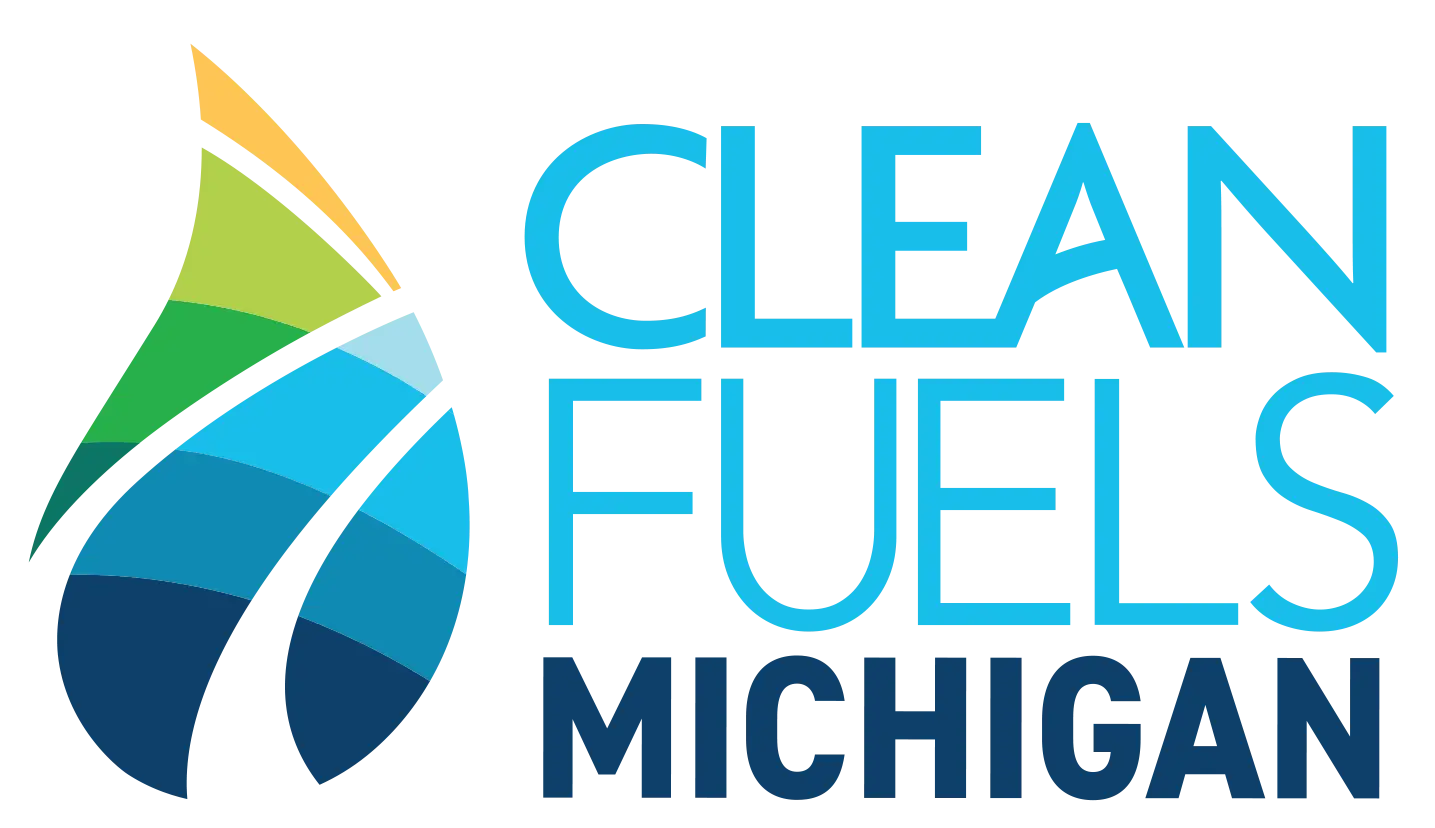Today, Clean Fuels Michigan submitted comments on Michigan’s draft National Electric Vehicle Initiative (NEVI) RFP. The draft RFP was posted in late February after the Federal Highways Administration (FHWA) published the final NEVI rules.
Clean Fuels Michigan is pleased to see that many of our priorities for Michigan’s use of $110 million for EV charging infrastructure are included in the draft RFP. We appreciate the State’s careful consideration of the many opportunities available to deploy charging stations across the state.
Our full comments on the Draft Michigan NEVI RFP are included below.
—
Dear Michigan NEVI Administrators,
Thank you for your attention to the importance of deploying charging infrastructure across Michigan. We sincerely appreciate the consideration placed on Michigan’s NEVI plan and draft RFP.
Clean Fuels Michigan is a nonprofit trade association dedicated to advancing the clean mobility industries in Michigan. Ensuring Michigan has the appropriate charging infrastructure to facilitate growth in the electric vehicles market is paramount. The importance of deploying NEVI funds appropriately and effectively cannot be understated, as Michigan urgently needs more charging infrastructure to facilitate passenger and commercial travel throughout the state.
We commend the NEVI team for putting together draft RFP materials. There are many favorable attributes included in the Michigan NEVI project criteria, including:
- Prioritizing areas with poor quality and environmental justice areas
- Future Proofing for medium/heavy-duty charging requirements
- Incorporating sustainability and environmental practices at sites
- Including cost containment strategies to maximize the NEVI program’s impact
There are three considerations Clean Fuels Michigan would like to highlight regarding the implementation of the draft RFP:
1) Operations and Maintenance Payment Milestones: We recognize the need to ensure that projects meet the uptime requirements set forth by the Federal Highways Administration (FHWA). However, retaining 10% of the grant amount could create a significant financial constraint for potential projects and risk that otherwise qualified projects will not have the cash on hand to participate in Michigan’s NEVI program. This risk is amplified for small businesses and site hosts with less access to capital than larger companies.
Recommendation: To balance upfront costs with uptime requirements, we recommend modifying Table 1 to adjust the operations and maintenance milestone payments to 5% and increase the design and permitting milestone to 15% of the grant amount.
Modified Table 1
| Milestone Event | Deliverable | Milestone Payment of Grantee Share of Total Eligible Cost |
| Design and permitting | Approved permit application (municipal), approved new service request (utility), and final site plan | 10% 15% |
| Construction and installation | Purchase of material, acquisition of labor, proof the charging station has been installed, tested, commissioned, and is available for public use | 80% |
| Operations and maintenance | Quarterly and annual reporting submittals meeting the data and performance requirements in the RFP | 10% 5% |
2) Power requirements: FHWA requires that stations have a minimum of four ports capable of delivering up to 150 kW, as requested by the EV. In the final guidance, there is a discussion about power sharing that is of importance to section III-D.c of the Michigan RFP. The language as written in section III-D.c of the Michigan NEVI RFP creates a disincentive for redundancy by requiring each port – no matter how many ports are installed – to meet the 150 kW requirement. This requirement will ultimately reduce the number of vehicles capable of simultaneously charging at a NEVI site.
Consider a site with four charging devices, each with two ports and capable of at least 150 kW per device. If four cars pulled up and each used a different device, each car could receive 150 kW simultaneously. When the fifth car arrives, it would double up at a device, potentially reducing the charge for the two cars sharing the device below 150 kW each. This scenario would not be allowed under section III-D.c.
However, if the above scenario had four devices, each with only one port, the fifth car to arrive would not be able to charge at all. This would be allowed under section III-D.c.
Recommendation: Clarify the power sharing rules with FHWA to ensure that Michigan is not unintentionally disincentivizing redundancy at charging stations and reducing the number of vehicles that can be serviced at NEVI stations. If allowed, modify the language in section III-D.c to reflect that stations with more than four ports can utilize power sharing, so long as the site is capable of providing 150 kW to four vehicles simultaneously.
Modified Section III-D.c
A minimum of four network-connected direct current (DC) 150 kilowatt (kW) charging ports capable of simultaneously and continuously charging four EVs; charging station power capability should be no less than 600 kW. Charging ports must support output voltages between 250 volts DC and 920 volts DC. Charging stations may conduct power sharing so long as each charging station can port continues to meet an EV’s request for 150 kW. Throttling the charging speed below 150 kW per port is prohibited when there are fewer than four stations and eight ports. The provision of charging speeds below 150 kW per port is not allowed under any circumstance.
3) Time is of the essence: The industry expects a tremendous increase in EV adoption over the next few years. From passenger vehicles to delivery vans, buses, and more, Michigan’s roads will see far more electric vehicles than in years past. This means we need to prepare – and quickly. NEVI funds are a crucial tool in the toolbox for ensuring Michigan’s residents, businesses, and visitors have pleasant, energized travel around the state.
Additionally, given the long timelines for projects of this magnitude, it is imperative to start early so that chargers are operational as fast as possible. We commend the NEVI team for posting the draft RFP and encourage funding to be released as soon as possible.
Thank you for the opportunity to provide our recommendations about Michigan’s Draft NEVI RFP. We are extremely excited to see this funding be put to work in Michigan. Please do not hesitate to get in touch if we can clarify any of these recommendations.
Sincerely,
Jane McCurry
Executive Director

